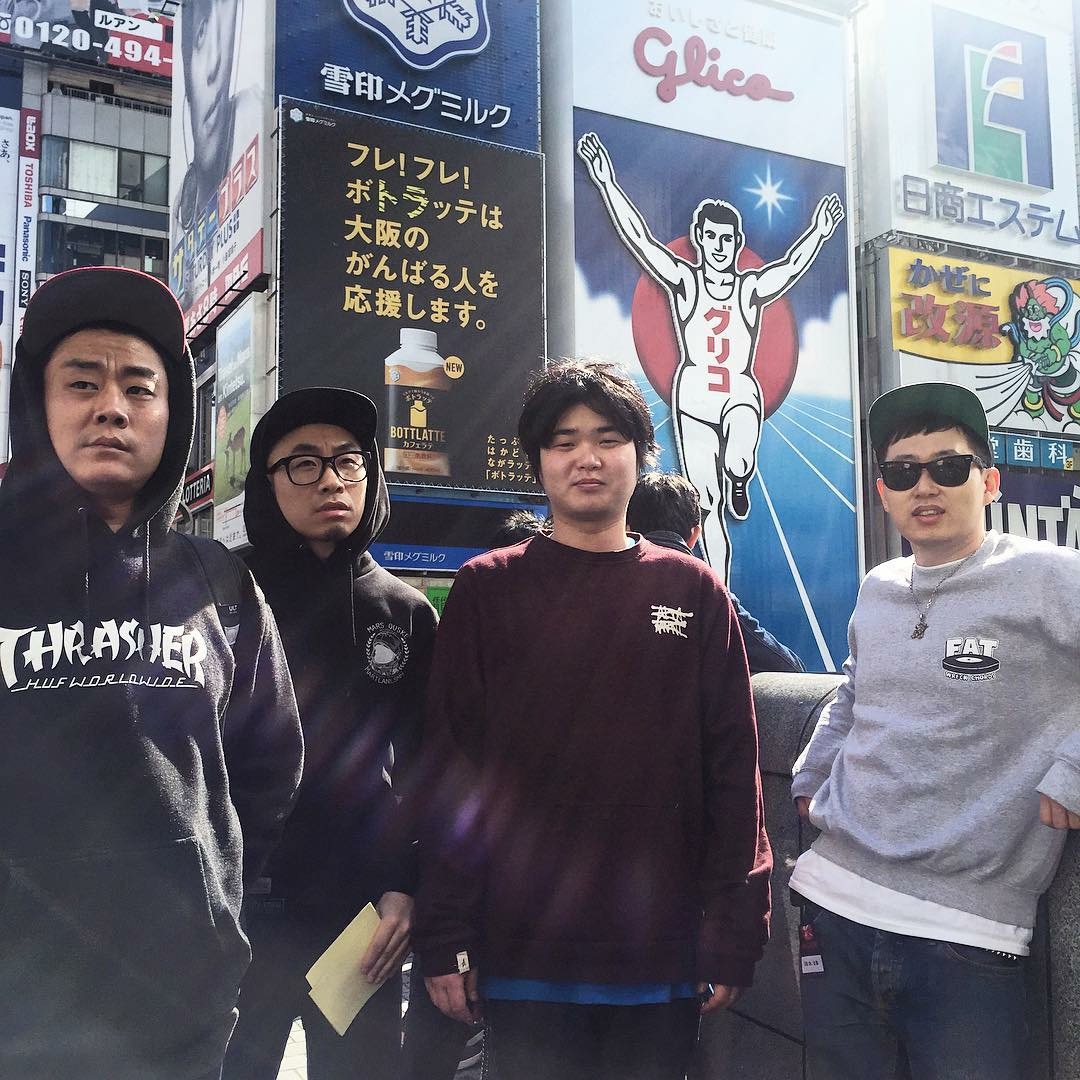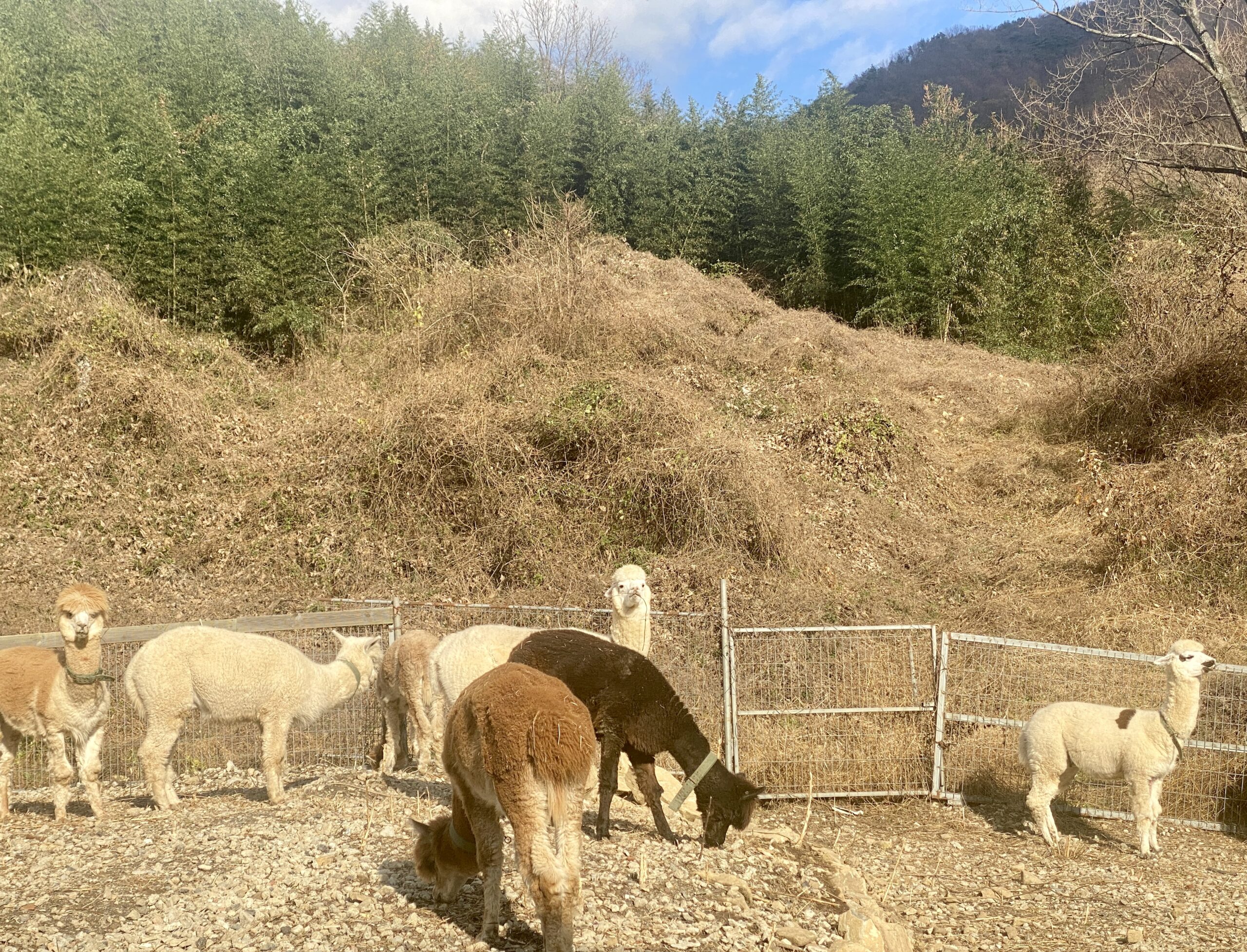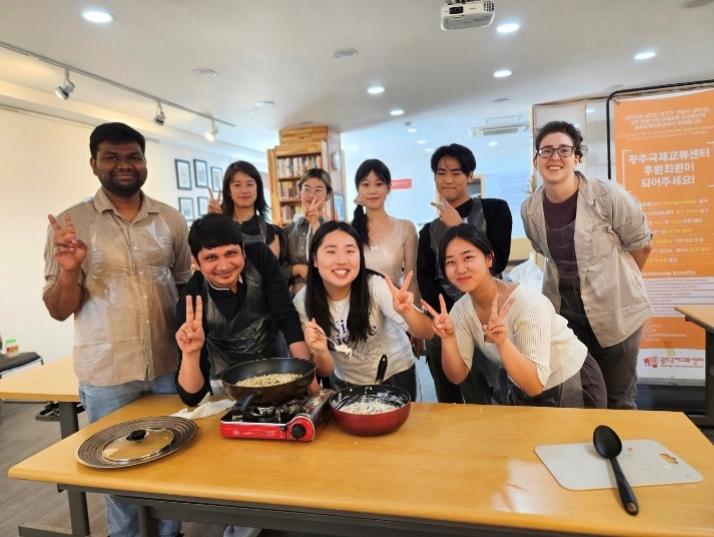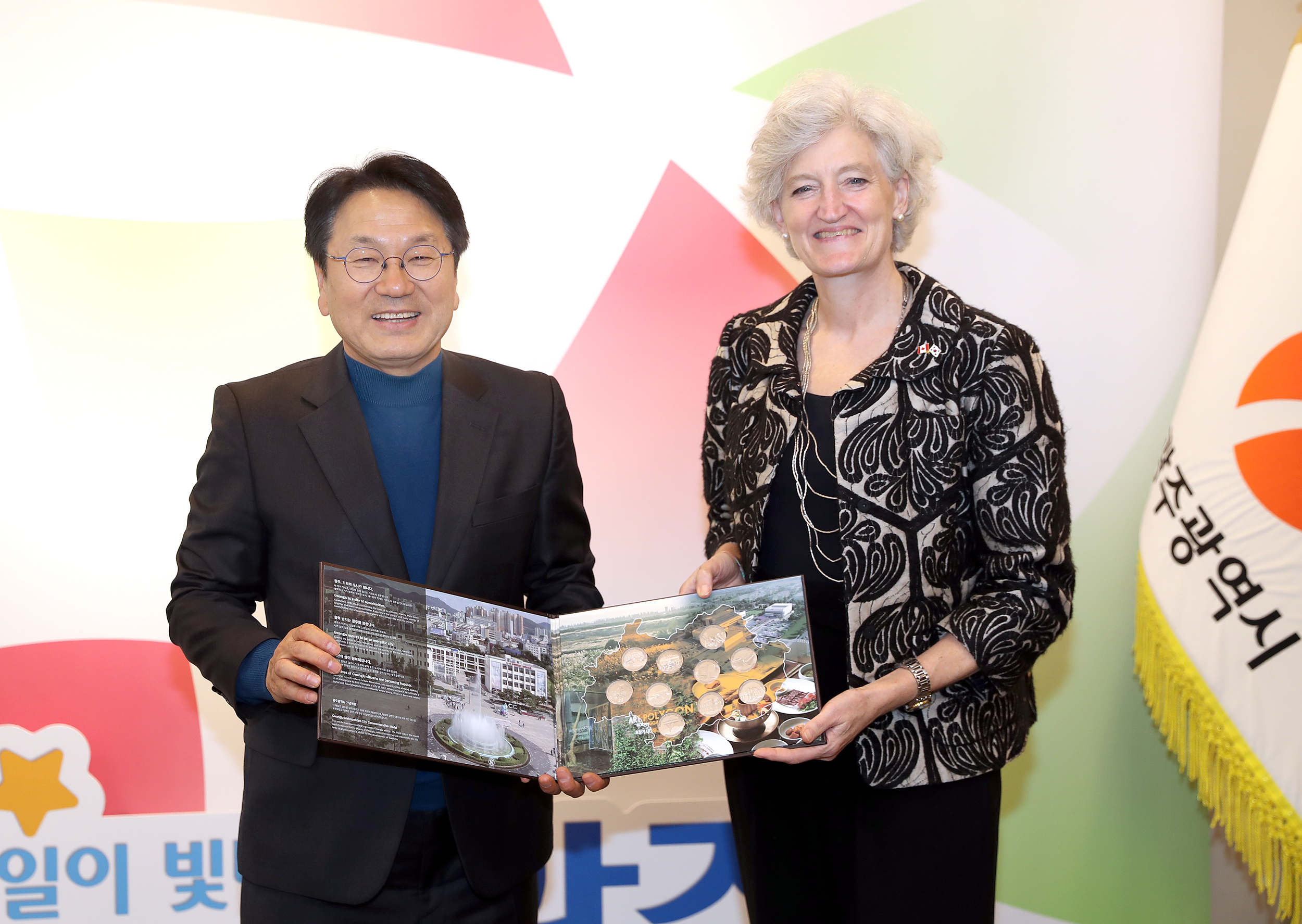“The Jewel in the Crown”: A Year of Cultural Exchanges
An Interview with Canadian Ambassador to Korea
By Arlo Matisz
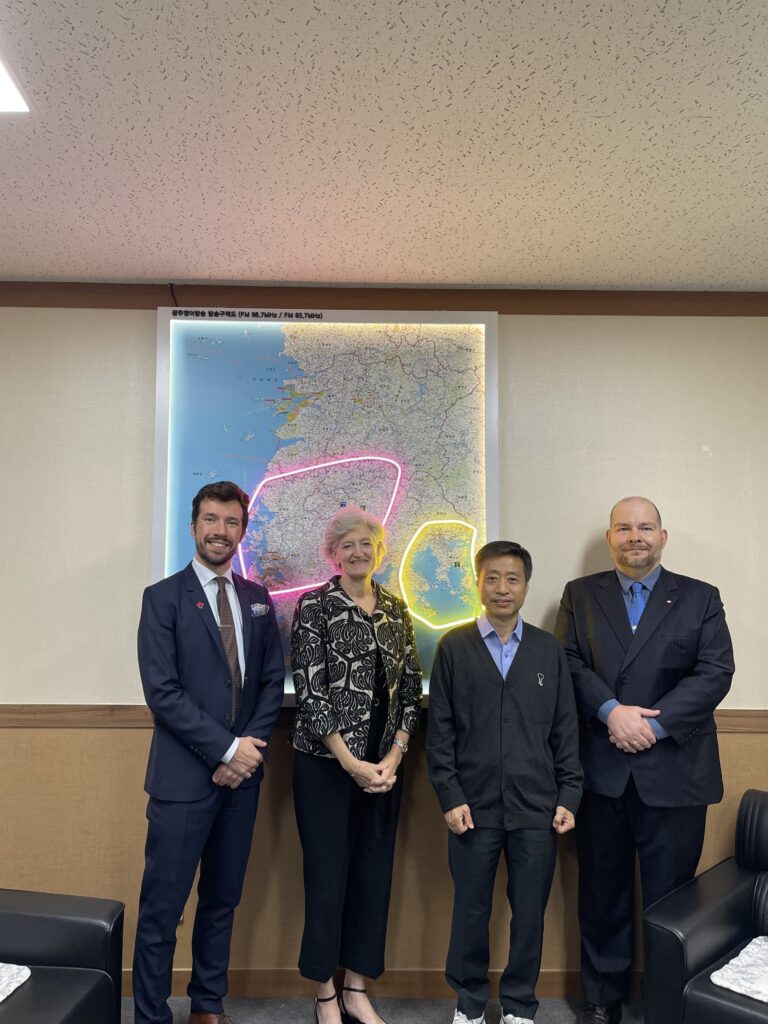
On Friday November 1, Tamara Mawhinney, the Canadian Ambassador to the Republic of Korea since 2022, was interviewed by GGN Global Gwangju Radio for a special program. This is a partial transcript of that interview. In the ambassador’s own words, “It’s really important for diplomats to get out of their offices and to get out on the ground and be able to get to know a country better. And sitting in the capital city is not the only way to get to know a country.” I’m sure the citizens of Gwangju would agree, and we are grateful that on her third visit to this city, she was able to meet with local media to discuss her work here.
Matisz: Could you tell us what brought you to Gwangju?
Ambassador Mawhinney: Gwangju is a very significant city in Korea, has a very special history and so many special connections for Canada. We’re here for the Biennale, and to establish other connections with the city of Gwangju. I met with the mayor earlier, met with some science and university institutions, and my colleagues met with groups of students. So, all in all, part of an ambassadorial day.
Matisz: What did you think of the Canadian Pavilion of the Gwangju Biennale?
Ambassador Mawhinney: Well, it was a very special experience. It’s not our first pavilion at the Biennale. We had one last year with an exhibition, the first exhibition in Korea ever of Inuit art. And the co-curators of that exhibition really built on the success of that, felt that they could do even better. They recruited and commissioned Korean artists to travel to northern Canada, to Kinngait near Iqaluit in the far northern reaches of the country, to meet with the Inuit artists who had been responsible for the exhibition last year, and to co-create some works of art that speak to the theme of “Home and Other Places.” It’s very moving and very poignant and wonderful for us Canadians to be here in Gwangju and to see representations of our beautiful country here, and how it’s understood and interpreted.
Matisz: I think it’s approachable.
Ambassador Mawhinney: Yes, there’s a sense of nature and of self that is easy to unpack. Canada starts with, I like to think, a positive perception for most Koreans. And this is a different aspect of Canada. It’s an aspect of Canada that many Canadians are not familiar with. It’s very hard to access the north, and it’s a very fragile ecosystem. It also really bears witness to some significant themes that we are dealing with in Canada, in our politics and in our society, and in particular reconciliation with our indigenous peoples. And I like to think that was certainly my takeaway from my first visit last year – the interest here in that theme of reconciliation and what it means for us as Canadians, reckoning with our colonial past and some of the more difficult issues in our treatment of our indigenous communities, and how we can find a better place in Canadian society for those cultures, traditions, that economy. I found there was really resonance here for those themes, and it’s important for us to talk about them as well. So, who better to discuss them with than our very good friends here in Korea.
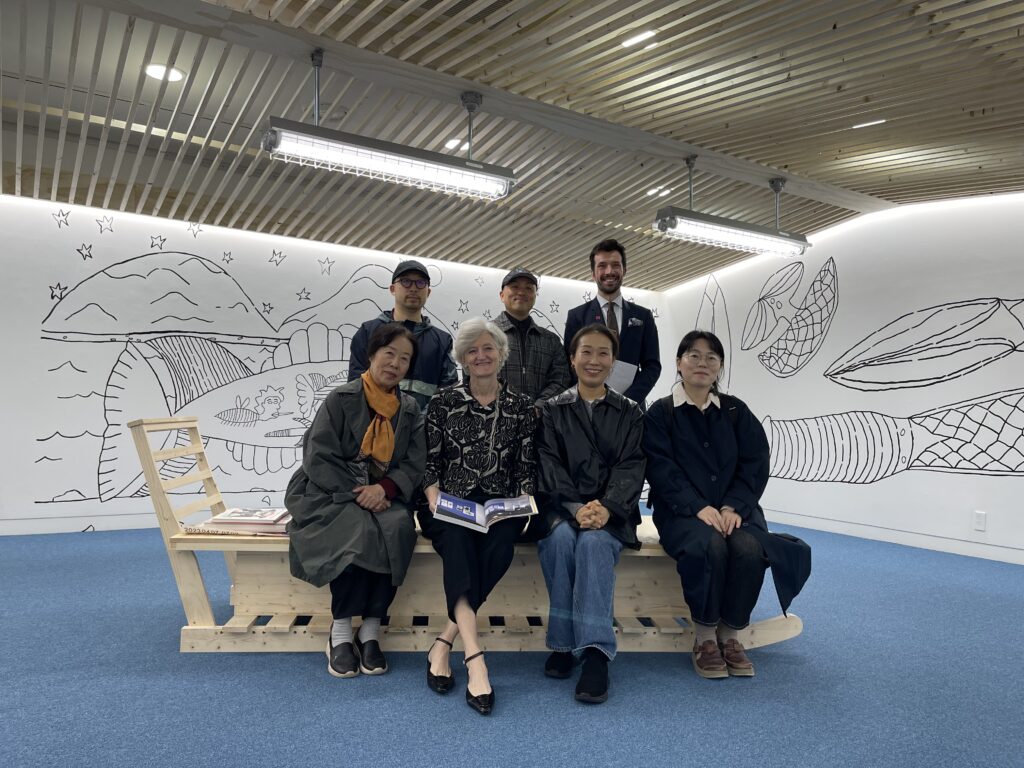
Matisz: Speaking of exchange and visiting Canada, it is part of the Year of Cultural Exchanges between Canada and Korea. Can you tell us about that?
Ambassador Mawhinney: I’ll sort of pull back a little bit. Last year was the 60th anniversary of Canada–Korea diplomatic relations. We celebrated that anniversary with suitable diplomatic pomp and circumstance, and the highlight, certainly for us at the embassy, was the visit of Prime Minister Trudeau, responding to the invitation from President Yoon to visit Korea. He spoke to the National Assembly on May 17, which was a wonderful anniversary and allowed him to speak to the deep connections between Canada and Korea on human rights, on democracy.
So as that year wrapped up, last year, the leaders turned to their officials and said, “We want to see this spirit and momentum continue.” We decided to develop this framework of “The Year of Cultural Exchanges.” This is really about building on the deep people-to-people ties between Canada and Korea. As you know, we have more than 200,000 Canadians who have Korean heritage, who have a connection to this country. There are many Canadians who live in Korea as well. There’s a long history of Canadian missionaries who traveled here in the 19th century, and our contribution to the Korean War. This is an opportunity to build on that, looking towards the future. So, we’ve taken a broad approach to the word culture with events like the Biennale, a literature festival, a couple of film festivals. We had a Canadian film at the Busan Film Festival. But we will also see creative industries and a trade mission, and we’re also building academic ties, research connections, and student exchanges.
One of the elements that Prime Minister Trudeau and President Yoon really emphasized was the increase in the number of work study visas available to young Canadians and young Koreans to study and work at the same time in the other country. For young Canadians to be able to come here and to be able to work at the same time really makes it a much more sustainable and, dare I say, enjoyable experience. Likewise for the Koreans who wish to study in Canada and be able to work at the same time. So that was sort of the jewel in the crown of our year of cultural exchanges.
Matisz: Tell us about your visit to the Gwangju Institute of Science and Technology.
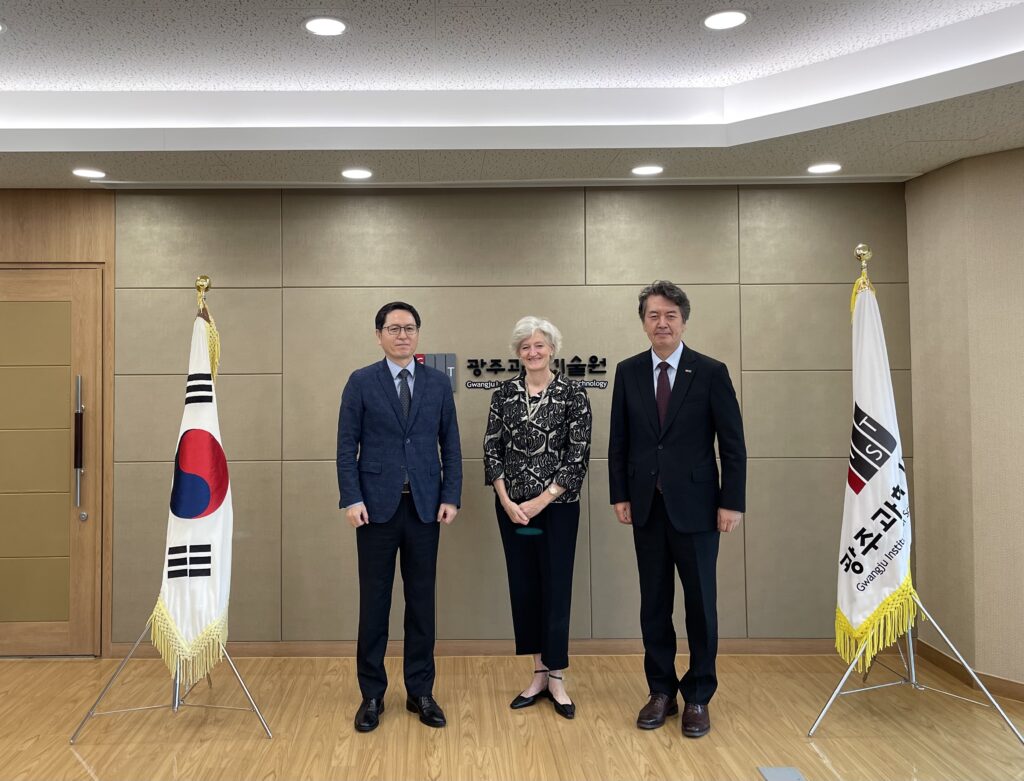
Ambassador Mawhinney: Well, it’s a very impressive institution of learning and higher education, and a great opportunity to talk about some of the potential for shared research projects between Canada and Korea. One of the key areas, and most dynamic areas for exchange, has been artificial intelligence and how we harness all the good stuff that AI can bring us and put it in the service of humanity. We have created AI research hubs in a number of cities. President Yoon visited the one at the University of Toronto when he was there in September of 2022, and met with Professor Hinton (Dr. Geoffrey Hinton Winner of the 2024 Nobel Prize in Physics). Across Canada, there’s really a lot of effort there, and we really want to see that joined up with Korean know-how, expertise, research, and innovation. One of the vehicles for that is going to be cooperation and research between universities, so I’m really hoping to see a new partnership for GIST with a Canadian university, the University of Ottawa, my hometown.
Matisz: Now, you’ve got quite a few things that you’re doing on this visit South, but I hear the primary event is at the Jeonnam Women’s Politics School. This event is funded by theKorean Women Parliamentarian Network (KWPN) – an organization established by former and incumbent women lawmakers under the Speaker of the National Assembly – with Rep. Kwon Hyang Yeop heavily involved.
Ambassador Mawhinney: Absolutely. I’m really looking forward to this, and a shout out to Representative Kwon, who’s been a leader in setting up this pop-up school. To set up this sort of conference and opportunity to exchange on women’s representation in politics, I think it’s a very important conversation to have for Canadians, for Koreans, to talk about gender equality, to talk about barriers for many groups, not just women, into politics how to make sure all of our politics are as reflective as possible of the societies we seek to represent.
I have a colleague who likes to say, “There’s no point trying to play a sport with half the team.” Ensuring that all groups see themselves reflected in their politics, in their political representatives, is a challenge.
Matisz: Are there any areas where Canada’s providing guidance or examples?
Ambassador Mawhinney: Well, we as diplomats try very hard not to tell other countries what to do. We try to start from a position of humility. We’re not trying to sermonize and say how things should be done. We like to share lessons learned, and we’re quite happy to speak to our weaknesses as well as to our achievements and our strengths. It’s much more trying to build a community of learning and a community of good practices and to share lessons learned. And we really try to work across all groups in Korean society to hear their perspectives and to support where we can, and we’re very engaged with Korean civil society; on North Korean human rights, which has universal relevance and resonance; and especially our focus on rights of women and girls. We try to encourage an open and a constructive conversation. That’s very much our sort of guiding principle. Maybe some aren’t aware that in Canada, women also face barriers and politics at every level and as well as other occupations.
Matisz: Is there anything that you could unpack for us about some of those difficulties?
Ambassador Mawhinney: I think one of the perspectives we bring, and perhaps it’s a specificity of Canadian society, maybe North American society, is we’ve looked a lot to legislative developments, and a key moment in Canadian history is the adoption of our Charter of Rights and Freedoms in the early 1980s, a really watershed moment in Canadian history, and that helped us open the way to establishing key norms that are implementing our international human rights obligations. Trying to establish a sound regulatory framework has been a key area where we have made progress.
Nothing is perfect, but I think that has provided the tools for people to establish good practices and try and ensure fair and equitable workplaces, and in particular, to try and address the gender pay gap. We too have faced pay equity issues, and that is, that was, a long struggle for several disadvantaged groups trying to achieve greater pay equity. Legislative frameworks have also been helpful to address care, the care economy, and in particular, parental leave. And I think that’s been an achievement, also an area for further progress, improving the provisions for maternity leave, but also encouraging paternity leave, and to really work towards that idea that it’s not just one group in society that should carry X or Y burden, that we all can share in it together, and it can be equally fulfilling. I think a key lesson is that it’s not just women who have to worry about gender equality. It’s something that we all share, and that we should all be concerned about and work together on.
Matisz: We certainly should. Thank you for your time here and for visiting Gwangju.
Photographs courtesy of the Gwangju City.

